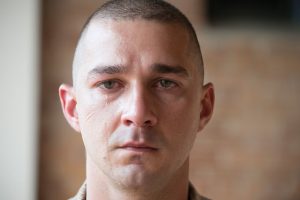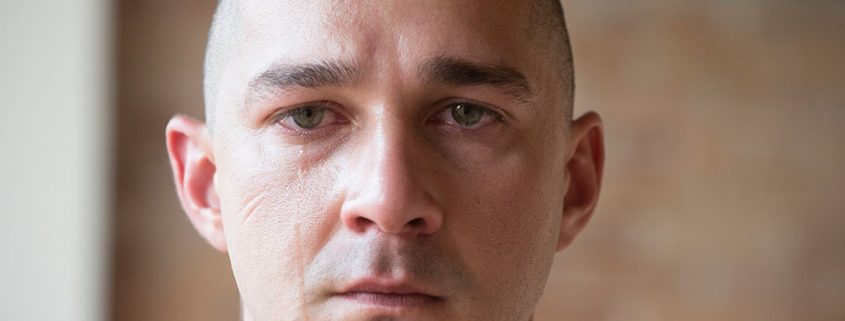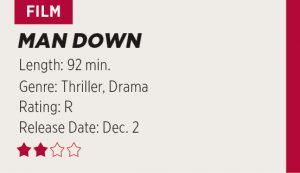REVIEW: Thriller film Man Down falls short of expectations
Man Down is a dramatic thriller with elements of suspense, driven by a performance of Shia LaBeouf in his role of a mentally fragile Marine with post-traumatic stress disorder. The film conveys a message about American veterans oftentimes omitted from mass audiences, but deserving of attention and sympathy nonetheless. America is presented in three different dimensions with abrupt changes of landscapes and narratives throughout the film.
The opening scene shows LaBeouf’s Gabriel armed and determined to save his son, who is a captive in some imaginary inimical camp. This particular sequence is a part of resolution for the film’s main mystery, which is explained hastily in the last 30 minutes. This familiar and proven way to get viewers’ attention from the very beginning serves as a premise to the story, challenging the audience to make their own explanations of the character’s actions before the dilemma is resolved.
The main protagonist, Gabriel, lives with his wife Natalie (Kate Mara) and son Jonathan (Charlie Shotwell) in American suburbs. Through a series of flashbacks it’s clear that he is a loving father and husband, whose blissful domestic paradise is ruined by his Marine duties during the Afghan war.

Photo courtesy of Lionsgate Premiere
Brotherhood and betrayal · Actor Shia Laboeuf delivers his most emotionally raw performance to date as a mentally ill military veteran who has a troubled history and relationship with his father.
The story becomes interrupted by hard trainings at Marine boot camp, held by a sadistic sergeant. At the camp, Gabriel strengthens his bond with Devin, a buddy who shares war intricacies with him. They both create a an on-screen picture of brotherly love — which seems to be hard to break — until betrayal takes place.
Aside from suburban family life, an interview in the office of counselor Peyton (Gary Oldman) assessing Gabriel’s mental condition, is another dimension of this story. Gabriel is being interrogated primarily about his personal reflections of military events and domestic drama. The long interview is presented through a series of intercuts with Gabriel revealing his feelings under the pressure of painful memories.
These sequences are tiring for the viewers, though they are the key scenes for getting a sense of the main character’s trauma. Gabriel’s mental dysfunction is played by LaBeouf in a compelling and honest way, which makes this picture less boring. His powerful performance of deep anguish and broken courage attenuates unexplained confusion of mixed intercuts.
Finally, the third dimension shows post-apocalyptic America destroyed by the power of a mysterious enemy. Here Gabriel, with the help of Devin and another survivor (Clifton Collins Jr.), is struggling to find his wife and son, who may be held as captives. This alternate reality is depicted horrifyingly, with ruins and ashes of an American city displayed as a background for Gabriel’s exhausting mission of saving his family.
The images of devastated America are the reality that awaits Gabriel instead of his beloved suburbs. These imagined remains of American city are aimed at delivering the tragedy of those who are unable to survive psychologically after the end of war. At the end, the movie will go back to the opening scene to elaborate on the agony of post-war experience for the whole family. The viewers see Gabriel’s wife and son, terrorized and suffering from painful loss of a husband and father. The final sequences offer depressing revelations and plunges the characters into a turmoil of grief and fear.
Although the movie seems to have no chances for mass appeal without the touching performance of LaBeouf, his impressive ability to play contrasting personalities serves as a successful distraction from the flaws of this melodramatic thriller. The audience gets enough of idyllic suburbs, Afghan streets and delusional ruins, but the lack of carefully exercised transitions between these realities is vivid and almost impossible to outweigh by the core meaning of the movie.
There is a hope that the baffling and seemingly disconnected realms may be compensated by the outstanding magic of LaBeouf’s acting and the idea to bring catatonic condition of those who went through the war to the attention of the audiences. The score by composer Clint Mansell complements the movie’s indelible sense of woe, transfixing the viewers and getting under viewers’ skin with its moving notes.


